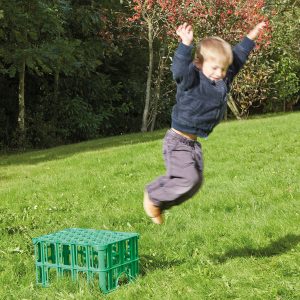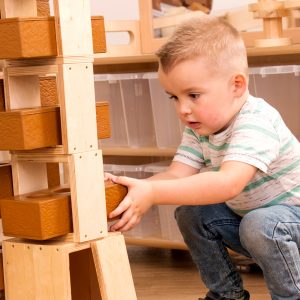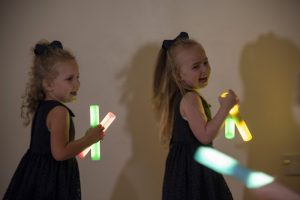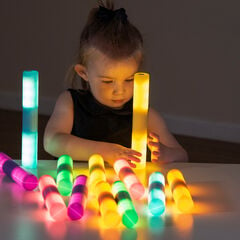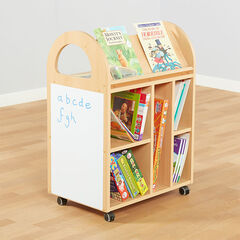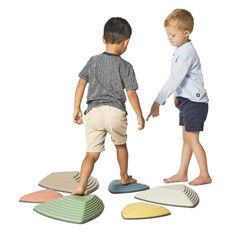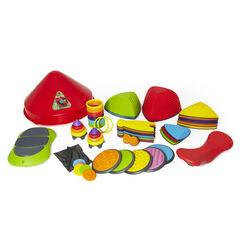Children’s physical development is currently at a level of concern. This year children have had limited opportunities for playing outdoors, in public parks and being able to freely move around without any restrictions.
Children’s physical development is currently at a level of concern. This year children have had limited opportunities for playing outdoors, in public parks and being able to freely move around without any restrictions.
How physical development impacts mental health, wellbeing and self-regulation:
Physical activity not only supports children’s gross and fine motor skills, but it also has a significant impact on mental health, wellbeing and self-regulation. For a long time research has shown that physical play and activity is associated with increased self-regulation (Becker et al., 2014). So children are able to control their feelings, emotions and actions better if they engage in higher levels of physical activity and have a good level of physical development.
Physical activity also supports mental health. A good level of physical development promotes self-confidence, self-esteem and reduces anxiety (Public Health England, 2019). And of course, physical exercise improves physical health, with reduced risks of becoming overweight and developing serious medical conditions (NHS, 2018).
Building a solid foundation for learning and development:
As we know, the Early Years Foundation Stage (EYFS) recognises physical development as a core foundation for other areas of learning. Having a variety of early movement experiences builds a solid foundation for children’s development. This allows children to progress on to learning new and more advanced skills as their bodies grow.
It is vital for early years settings to provide as many opportunities as possible for children to move in different ways throughout each day. Some children may not have enough space and freedom to move enough at home. They may also not have access to outdoor space on a regular basis. Early years settings need to facilitate opportunities for movement both indoors and out. Practitioners can work with parents to support children’s physical development outside of the setting.
Create a ‘movement-rich’ environment in your setting:
- Allow for plenty of floor space with no obstructions to ensure safety. This can be easier with moveable furniture on wheels
- Provide sensory resources which encourage movement and dance. For example, voiles, scarves and sensory resources
- Model movement games and dancing throughout the daily routine
- Play different music throughout the day- both indoors and out
- Provide different surfaces for children to experience and manoeuvre on
It is vital that children develop a positive attitude to physical activity and a love for movement. Sometimes this can be difficult when space is limited, during colder weather or when children are simply not interested. This is why we have been working on innovative ways to support children’s enjoyment and motivation for physical activity.
Take a look at how children at Bright Minds Daycare are engaging in music and dance as part of their daily routine:
Here are some ways sensory technology resources can encourage children to move around:
- Encourages dancing and experimentation through movement
- Supports self-expression through movement
- Sparks imagination, creativity and a sense of performance
- Supports fine motor skills through exploration with schematic play
- Encourages movement through curiosity and cause and effect
- Sparks collaborative play
Take a look at how we have been encouraging movement through the Light Up Glow Cylinders:
References:
Becker, Derek & Mcclelland, Megan & Loprinzi, Paul & Trost, Stewart, 2014. Physical Activity, Self-Regulation, and Early Academic Achievement in Preschool Children [Online]. Early Education & Development. 25. 56-70. 10.1080/10409289.2013.780505. [Online]. Available at: //www.researchgate.net/publication/269701196_Physical_Activity_Self-Regulation_and_Early_Academic_Achievement_in_Preschool_Children [Date accessed: 14 December 2020]
NHS, 2018. Benefits of Exercise [Online]. Available at: //www.nhs.uk/live-well/exercise/exercise-health-benefits/[Date accessed: 14 December 2020]
Public Health England, 2019. Physical activity helps children to deal with life’s challenges [Online]. Available at: //www.gov.uk/government/news/physical-activity-helps-children-to-deal-with-life-s-challenges [Date accessed: 14 December 2020]
With thanks to Angelica Celinska for writing this blog. Angelica has 10 years experience working in the Early Years and Primary sector with a Masters in Early Years Education from the Institute of Education, University College London (UCL).


